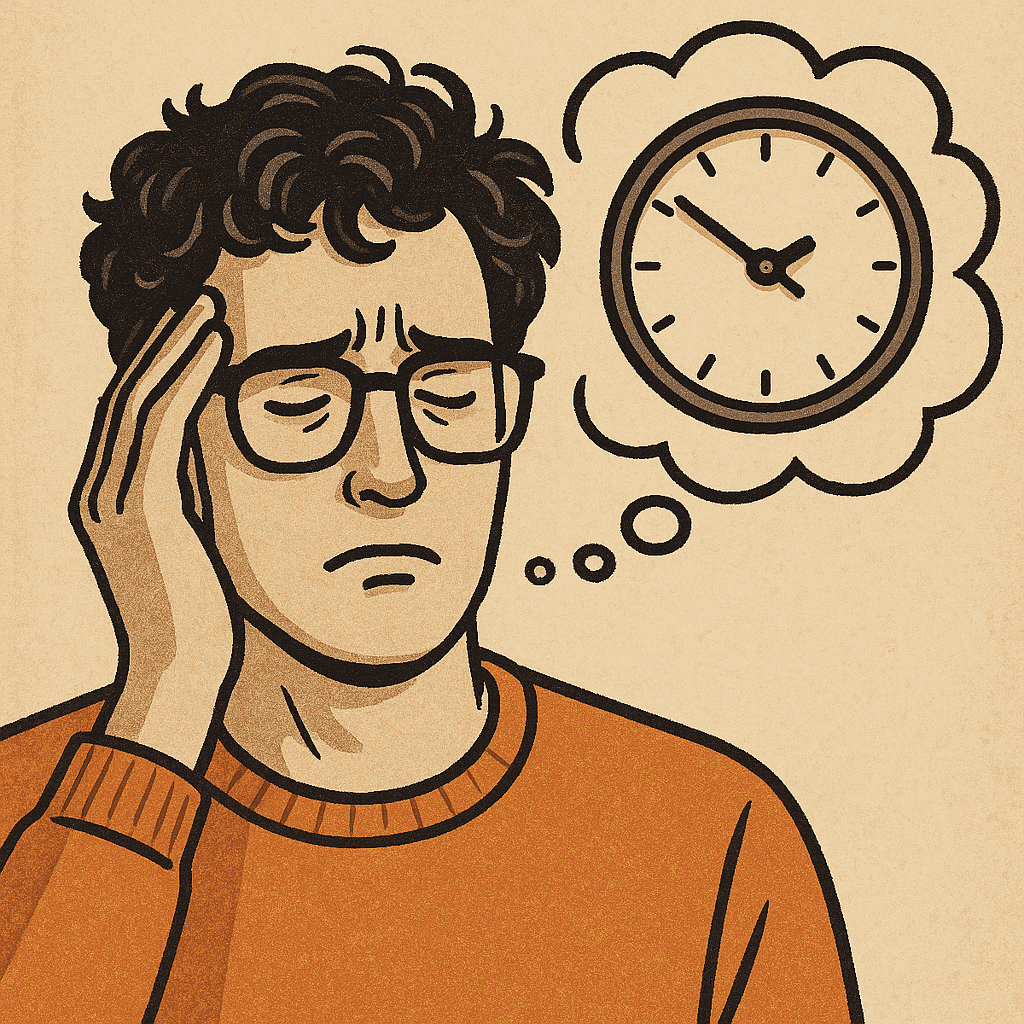What Happens When You Think Slower Than Usual?
Natalie Brooks July 29, 2025
In today’s fast-paced world, we are constantly pushed to think quickly, make fast decisions, and act impulsively. From the pressure of deadlines to the rapid flow of information in our digital lives, the pace at which we operate can often leave us feeling overwhelmed and stressed. However, there is growing recognition that slowing down our thinking can provide a host of benefits, ranging from improved mental clarity to better decision-making. This article explores the science behind slowing down your thoughts and why it is essential for improving mental health and enhancing everyday functioning.

Why Slowing Down Your Thoughts Matters
In the modern world, it’s easy to fall into the trap of fast thinking. The constant rush to get things done can cause our brains to process information quickly, but this can lead to shallow, less considered decisions. Slowing down your thoughts, on the other hand, provides your brain with the time and space it needs to process information more deeply. This can result in better cognitive functioning and emotional regulation.
When you allow yourself to think at a slower pace, you provide your brain the opportunity to evaluate options more thoroughly, reducing anxiety and increasing emotional balance. Taking the time to pause before reacting allows you to respond more mindfully, improving your ability to handle challenging situations.
Why Slowing Down Is Important for Your Brain
One of the main benefits of slowing down is that it gives your brain the chance to process information more thoroughly. Fast thinking often means jumping to conclusions without fully understanding the situation, which can lead to poor decisions and increased stress. By consciously slowing down your thinking, you are allowing your brain to take a step back and assess the situation with more clarity. This helps reduce impulsivity and provides more time to reflect on your emotional responses.
Additionally, slowing down helps to activate the prefrontal cortex—the area of the brain responsible for higher-order thinking, such as problem-solving and decision-making. This part of the brain functions optimally when you allow yourself time to reflect, rather than rushing to make snap judgments. As a result, thinking slower can improve your overall cognitive performance and emotional control.
The Benefits of Thinking Slower
Slowing down your thinking comes with several powerful benefits for both mental and emotional health. Here are a few key advantages:
1. Better Decision-Making
One of the most significant benefits of thinking at a slower pace is improved decision-making. When you give yourself time to think through different options and outcomes, you are more likely to make informed, thoughtful decisions. This reduces the chances of regretting hasty choices and can lead to more positive outcomes in both personal and professional settings.
For example, in business or entrepreneurship, making quick decisions is often seen as a sign of leadership. However, taking time to evaluate all factors and risks associated with a decision can ultimately lead to better strategic outcomes. The process of slowing down helps you to see all sides of a situation, ensuring a balanced approach to problem-solving.
2. Improved Emotional Control
Slower thinking provides a buffer between emotional reactions and your responses, which is critical for managing stress and emotions. When faced with a stressful or difficult situation, it is easy to react impulsively. However, by slowing down and taking a moment to reflect, you can create space for a more measured, thoughtful response.
This kind of emotional regulation is particularly important in situations where you need to stay calm under pressure. Whether in the workplace or in personal relationships, thinking slower allows you to respond with greater clarity, reducing the likelihood of conflict or regret. The ability to manage your emotional reactions also leads to better mental health over time, as it reduces the impact of negative emotions like anger, frustration, or anxiety.
3. Clearer Mental Focus
Slowing down allows you to clear mental clutter and focus on the present moment. In our fast-paced world, it’s easy to become distracted by a constant flow of thoughts, messages, and tasks. However, by giving yourself permission to slow down, you can regain focus and concentrate on what matters most.
Taking a step back from the whirlwind of daily tasks helps you prioritize what needs your attention and what can be put aside. This mental clarity not only enhances productivity but also contributes to a greater sense of calm and well-being. Focusing on one task at a time, without the pressure of rushing, leads to better results and a more satisfying sense of accomplishment.
How to Incorporate Slower Thinking Into Your Life
Incorporating slower thinking into your routine doesn’t require a complete overhaul of your lifestyle. Rather, it involves making small adjustments that allow your mind to reset and process information at a more relaxed pace. Here are some practical strategies to help you slow down and think more clearly:
1. Practice Mindfulness
Mindfulness is the practice of staying fully present in the moment without judgment. It helps train your brain to focus on the here and now, rather than worrying about the past or future. One effective way to practice mindfulness is through deep breathing exercises, where you focus on your inhales and exhales to bring your attention back to your body.
Mindfulness can help you manage stress, improve emotional regulation, and sharpen focus. Incorporating mindfulness into your daily routine, whether through meditation, mindful walking, or simple breathing exercises, can significantly slow down your thinking and promote mental clarity.
2. Schedule Breaks During the Day
Taking regular breaks throughout the day gives your brain time to rest and reset. Instead of working through lunch or continuing to focus on tasks without interruption, take short breaks to step away from your desk and clear your mind. Even just five or ten minutes of walking or stretching can help you release tension and return to your tasks with a fresh perspective.
By scheduling breaks, you prevent mental burnout and allow your brain the space it needs to think more clearly and effectively. This practice not only reduces stress but also boosts productivity and creativity.
3. Journaling for Reflection
Journaling is an excellent way to slow down your thoughts and gain clarity. Writing down your thoughts, feelings, and experiences helps you process complex emotions and organize your ideas. It provides an outlet for mental clutter and helps you reflect on your day, giving you insight into your thought patterns and emotional responses.
By regularly journaling, you allow yourself the time and space to think deeply and reflect on your experiences. This practice can also help you develop a better understanding of yourself, improve emotional regulation, and clarify your decision-making process.
Slower Thinking: A Mental Reset
Incorporating slower thinking into your life doesn’t mean sacrificing productivity. On the contrary, it enables you to process information more effectively, make thoughtful decisions, and manage your emotions. Slower thinking creates space for reflection and intentional action, leading to better overall well-being.
Rather than rushing through life, take the time to embrace a slower-paced mindset. By adopting practices such as mindfulness, reflection, and rest, you can cultivate mental clarity, reduce stress, and enjoy greater focus throughout your day. Slowing down isn’t just about moving at a slower pace—it’s about making space for thoughtful engagement with the world around you.
Conclusion
In a society that prioritizes speed and efficiency, it can be difficult to slow down. However, slowing down our thinking is a powerful tool for mental well-being and emotional health. By intentionally taking the time to reflect, pause, and process, we can improve decision-making, regulate our emotions, and enhance our mental clarity. Slower thinking encourages us to value quality over speed and to approach life with greater mindfulness and intention.
By incorporating practices like mindfulness, journaling, and regular breaks, you can experience the full benefits of slower thinking and lead a more focused, less stressful life. The next time you feel overwhelmed or rushed, take a step back, slow down, and allow yourself the time and space to think clearly.
References
- Mindfulness and Emotional Regulation, https://www.grandrisingbehavioralhealth.com
- Journaling for Mental Clarity, https://www.alisbh.com
- Cognitive Benefits of Slowing Down, https://www.holisticwellnesspractice.com







